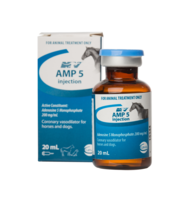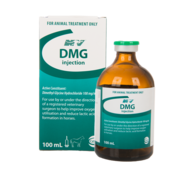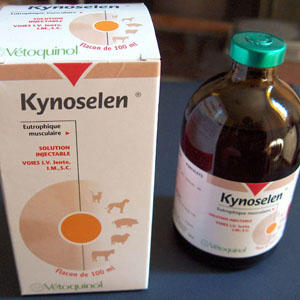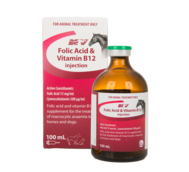N,N-Dimethylglycine (DMG) has been marketed as a nutritional supplement since 1974 and has seen wide use in both human and animal health fields. Research beginning in late 1978 found that DMG could positively influence the immune response in laboratory animals and humans, 1 boost physical and mental performance in athletes 2. VET ONLY PRODUCT - Dimethyl glycine HCL supplement to aid circulation, performance, endurance and recovery. DMG Injection SDS (Aug2016).pdf. DMG (Dimethylglycine) is a naturally occurring nutrient often described as an ergonomic food factor or anti-stress nutrient. It is given as a supplement and has many benefits including improving oxygen utilization and reducing lactic acid formation in horses.
- Dmg Injection For Horses Cost
- Dmg Injection For Horses Reviews
- Dmg Injection For Horses For Sale
- Dmg Injection For Horses Near Me
Presented by
The term “nutraceutical” combines the word “nutrient” (a nourishing food or food component) with “pharmaceutical” (a medical drug). This term has been used to describe a broad list of products sold under the premise of being dietary supplements (i.e., foods) used for the expressed intent of treatment or prevention of disease. These products are used in human nutrition and have become popular in the equine industry also.
The theory behind the mode of action of nutraceuticals is to provide functional benefits by increasing the supply of natural building blocks in the body. Replacement of these building blocks can work in two ways: to diminish disease signs or to improve performance. The use of nutraceuticals as performance enhancers is much more common than treatment of disease. Much of the data used to promote nutraceuticals to the public come from human research. There are only a limited number of nutraceuticals for which research has been done in the horse. For this reason, this article will discuss only products that have had some preliminary testing in the horse. The following is a brief discussion of the theorized mode of action, a summary of human studies, and results of equine research.
Dmg Injection For Horses Cost


Carnitine is an amino acid found in abundance in cardiac and skeletal muscle. Since carnitine is involved with the utilization of fatty acids for energy in the muscle cell, it has been hypothesized that supplementation of carnitine would be glycogen-sparing and reduce lactic acid production. The end result would be improved muscle function and endurance. While human studies have not been able to show an increase in muscle carnitine from supplementation or improvement in performance with healthy individuals, improvement in humans with impaired oxygen supply was seen in heart and skeletal muscle from carnitine supplementation. Endogenous synthesis, primarily in the liver, is probably adequate in the normal healthy adult but may be deficient at times of stress and in certain disease states.
The carnivorous human diet is typically very high in carnitine, while the herbivore diet is very low, and the horse will have to produce the majority of its carnitine supply endogenously. Taking this into consideration, researchers have investigated responsiveness of oral carnitine supplementation in adult horses and yearlings. Results are somewhat inconclusive in that supplementation increased plasma free carnitine in adult and most yearling horses, while long-term feeding did not increase muscle carnitine concentrations. Since an increase in muscle carnitine is what would improve performance, the research offers no evidence in the horse that supplementation really helps.
Creatine supplementation is done in the hope that increasing the creatine content of muscle will increase the corresponding creatine phosphate (PCr) concentration. A simple reaction involving creatine phosphate is the muscle cell’s first and fastest source of energy for contraction. It is present in limited amounts in the muscle cell and has a fairly rapid turnover rate. The availability of PCr has been proposed as one of the most likely limitations to muscle performance during intense, fatiguing, short-term exercise. Scientific investigations in humans indicated that the PCr content of muscle was increased by taking creatine supplements, and that exercise performance is improved by ingestion of creatine over a period of days prior to the exercise test. However, in another study 30% of subjects ingesting creatine failed to show an increase in muscle creatine or retain substantial quantities. One major problem with creatine supplementation is the frequency that the supplement has to be taken (4 to 6 times per day), which makes it impractical for the horse. One study done in racing Thoroughbred horses failed to show marked increases in muscle creatine after supplementation, and no improvement in performance.
Dmg Injection For Horses Reviews
Coenzyme Q10, also called ubiquinone, is a substance found in the body as a component of the mitochondrial respiratory chain. It works in concert with other substances to regenerate ATP (energy) in a cell. Coenzyme Q10 also functions as a powerful antioxidant and free radical scavenger. An antioxidant is a substance that gives up electrons easily and can act to neutralize harmful oxidants and free radicals. In humans, the levels of coenzyme Q10 have been found to be below normal in patients with cardiovascular disease and periodontal disease. Whether low levels are a cause or effect is not clear, but coenzyme Q10 supplementation has been reported to have been used successfully in the treatment of heart problems, muscular dystrophy, myopathies, and periodontal disease. Use of coenzyme Q10 is not very well researched in the horse. One study found that coenzyme Q10 may have an indirect effect on the utilization of oxygen within the tissues, but had no effect on lactate metabolism or heart rates. Perhaps the use of coenzyme Q10 in the horse has potential in treatment of heart and muscle disorders, but it needs to be investigated further.
Dimethylglycine (DMG), a derivative of the amino acid glycine, is a normal intermediate in choline metabolism and has been proposed to enhance creatine phosphate stores in muscles. Many of the claims of the benefits of DMG supplementation are to increase oxygen utilization, reduce lactic acid accumulation in the muscles, strengthen the horse’s natural immune response system, prevent tying-up, increase a horse’s tolerance to vigorous physical activity, and improve overall performance. DMG first came to the forefront when it was found that the Russian athletes were using the “super drug” that they called vitamin B15 or pangamic acid as a performance enhancer. Work done in humans receiving DMG orally suggests that it will boost the immune system. The use of DMG in the horse has been studied more than most nutraceuticals, but still far from extensively, with mixed results. Studies on supplementation of DMG to Standardbreds and Quarter Horses found reduced blood lactate, while a third study with Thoroughbreds found no benefit. The fervor over DMG has died down and little work has been done on the subject in recent years.


Dmg Injection For Horses For Sale
HMB (ß-hydroxy-ß-methylbutyrate) is a product made in the muscle tissue from the amino acid leucine. Once HMB is formed, it serves as a building block for intramuscular cholesterol synthesis. During stressful situations like heavy training and exercise, it is theorized that the muscle cell may not be able to make enough cholesterol for maximal growth or function. Supplying HMB in the diet supposedly would keep blood cholesterol at an optimal level. Work in humans has indicated that aerobic exercise performance and muscular strength can both be improved with HMB supplementation. Studies in Thoroughbreds also show promise for the nutraceutical. A treadmill study found lower muscle tissue breakdown in HMB-supplemented horses with higher blood glucose during exercise than controls. One study with horses in actual race training and racing conditions found a lower amount of muscle enzymes (indicative of muscle damage) in the HMB supplemented horses after a race. The general impression of HMB supplementation was that it allowed the horses to condition faster.
Dmg Injection For Horses Near Me
Oral joint supplements are used to work as an anti-inflammatory agent and/or to supply additional building blocks for the formation and maintenance of normal joint cartilage. Ultimately, the idea is to make movement in the joint less painful for the individual. Most oral joint supplements contain chondroitin sulfate and/or glucosamine. Joint supplementation is one area of research where the work done in the horse stimulated interest for use of the products in the human. Research has established that oral supplementation does get the product into the bloodstream. Although glucosamine has low bioavailability in horses as measured by blood levels, it does accumulate in cartilage and is detectable in synovial fluid for at least 12 hours after dosing. Recent research has also shown that higher levels accumulate in inflamed joints than normal joints, and low concentrations of glucosamine can inhibit cartilage degradation. In vitro studies have shown some positive results with CS, and there are also some clinical studies with a combination of CS and glucosamine products that have been encouraging. One study in old horses showed increased stride length and range of joint motion, as well as improved soundness compared to control horses that were not treated. This type of nutraceutical is one area where a flurry of research can be expected in the coming years.
Subscribe to Equinews and get the latest equine nutrition and health news delivered to your inbox. Sign up for free now!
